Skinner - Interview
by John Clarkson
published: 26 / 6 / 2011
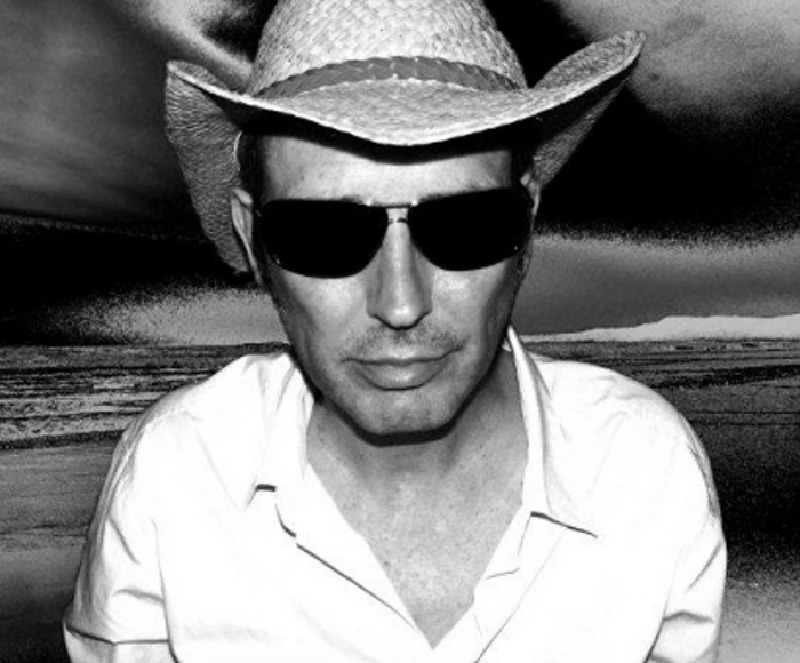
intro
John Clarkson speaks to to former Hipsway and Cowboy Mouth front man Grahame Skinner about his return to music after a fifteen year absence and his new project Skinner
One of the great Scottish voices of the 1980s, Grahame Skinner has recently returned to singing after an absence of fifteen years. “Skin” -as he is also known – made his first tentative steps back into live work last June when he was invited by his old friend James Grant to join him by singing two of his old band Hipsway’s songs at one of Grant’s gigs in their native Glasgow. He has since returned the favour by providing backing vocals for Grant when he reformed his own 1980’s band Love and Money for a triumphant show in January, and now has a new band Skinner, which made their debut to strong reviews headlining Ayrshire’s annual Darvel Music Festival in May. Grahame Skinner sung with both the Jazzatteers, appearing on their self-titled 1983 second album, and the White Savages, before forming rock/soul/funk outfit Hipsway in 1984. Hipsway, who signed to Mercury Records, had a Top Twenty hit in both the UK and America with ‘The Honeythief’ in 1986. Their self-titled debut album also charted, and one of its songs, ‘Tinder’, gained Hipsway further exposure when it was used in a McEwan’s Lager television commercial. Hipsway were never, however, able to build on this early success. Their bassist, former Altered Images member Johnny McElhone, left as a result of creative differences and formed Texas soon after sessions began on a second album, ‘Scratch the Surface’, and drummer Harry Travers quit just after it was completed. When the underrated ‘Scratch the Surface’ was finally released three years after ‘Hipsway’ in 1989, it attracted little attention, and Hipsway broke up shortly after its release. Skinner played with Hipsway guitarist Pim Jones in another two bands, rock outfits the Pleasurelords and Witness, the latter of which released an album ‘A House Called Love’ on A&M in 1991. He then formed in 1994 Cowboy Mouth with Love and Money members Douglas MacIntyre (guitars), Paul McGeechan (keyboards) and Gordon Wilson (drums). While his deep crooning vocals remained as distinctive as ever, Cowboy Mouth, which took its name from an obscure 1971 Patti Smith and Sam Shepard play allegedly written in a night, were all other respects a departure for Skinner from his other groups, having a late night, confessional feel and stark sound. They released two albums in rapidfire succession, ‘Life as a Dog’ (1994) and ‘Love Is Dead’ (1995), both of which came out on the German independent label Marina Records. Skinner’s new band also features MacIntyre, Gordon Wilson and Campbell Owens on double bass, and at their debut show played a set of stripped down Hipsway and Cowboy Mouth songs. They now plan to record an album. In one of his first interviews to promote his new group, Grahame Skinner spoke to Pennyblackmusic about his decision to return to playing and making music after his long hiatus from it. PB: You first started playing live again after playing versions of the Hipsway songs, ‘The Broken Years’ and ‘Ask the Lord’, with James Grant at one of his gigs. How quickly after that and playing those songs did you get the idea of forming a band again? GS: I wasn’t sure whether to form a band or just to try and play acoustically like James was doing at the time. When I got offered the Darvel Festival show, I gave them the choice between a band or me playing solo, and they said that they wanted a band. I just went from there really. I was happy to go with a band. I am not the greatest guitar player in the world, and I am glad that we did it that way. PB: How quickly having played that first gig with James did you decide that you wanted to play gigs of your own again? GS: It was almost immediately after doing that show with James. It has taken a year though since then (Laughs). PB: Skinner is actually an old name and the title of an unreleased album of a project that you had in the late 1990s. Why did you decide to resurrect that title? GS: That was Douglas MacIntyre’s idea to call it Skinner. It wasn’t my idea. I didn’t know what to call it, and he came up with that idea. PB: The concept of Skinner is to play Hipsway and Cowboy Mouth songs in a stripped down style. Whose idea was that? GS: The songs were all my choices. I hadn’t done Hipsway songs in twenty odd years. When something goes bad you just want to forget about it (Laughs), and I had never wanted to trade on it. Listening back to that first record though after a long time, I was like, “This is a good record. Why ignore it?” I knew as well that people would want to hear those songs. When I played those two songs with James with him on guitar and me on vocals, it sounded good, at least to my ears anyway (Laughs), and that gave me the idea that it could work in a different way without percussion, keyboards and the sort of thing that we used to have in Hipsway. PB: Is the idea of Skinner to write new material too? GS: Yeah, I have written a few songs recently and I would quite like to re-record some of those songs from the unreleased Skinner album, just as long as it all fits together well. PB: Why have you decided to focus on Cowboy Mouth along with Hipsway rather than your other bands? GS: The guys who play in Skinner with me, Douglas and Gordon, are the soul of Cowboy Mouth. We like those songs a lot and never played a lot live when we were in Cowboy Mouth. We felt that they deserved another hearing. I have counted up that I have been involved in about a hundred and fifty different songs in my time. It is difficult to distil them down to a set of eleven or twelve songs, but I hope if we play more we might do some different songs from some of my other bands as well. PB: You first came to prominence as the singer in the Jazzateers and appeared on their self-titled second album in 1983. Was that your first band or had you been playing in other groups before that? GS: I was in another band, the White Savages, at that time, which featured Douglas and Harry Travers, the drummer in Hipsway. Glasgow had a really small scene in which everyone seemed to know each other. Everybody went to the same three or four pubs and the same two clubs. I knew the guys from the Jazzatteers anyway. They were looking for someone to do some singing for them as their singer, Paul Quinn, had just quit. They had the money to make an album and some recording time booked, and they asked me to do the vocals for it, which was great because I got paid for it as well. I took a couple of weeks out of the White Savages to make that album. PB: Is it true that Hipsway formed as a result of the White Savages and Altered Images breaking up on the same morning? GS: We were pals with Altered Images. Douglas was best friends with Stephen Lironi who was in Altered Images. We knew them all as friends anyway. It seemed like it all happened at the same time, but it didn’t really because we did a demo of ‘The Broken Years’ before Johnny McElhone joined Hipsway. We gave Gerry, Johnny’s brother and manager, a copy of that demo, and it was that demo which persuaded Johnny to start a band with us and Gerry to also manage us. PB: It seemed that Hipsway was very quickly snapped up by Mercury Records. Was it as fast as it seemed? GS: No, it was nothing like as fast as it seemed. We wrote songs and we rehearsed for about six months, and then when we started getting people to come to gigs. It was another five or six months after that. I gave up my job to rehearse full time and concentrate on Hipsway, and ran up a huge debt on my credit card. It is the sort of thing that you can only do when you are young. PB: A lot of the songs on that first album such as ‘The Broken Years’ and ‘Ask the Lord’ seemed to have a very strong political slant. Were you writing a lot about what you saw in Glasgow at the time? GS: All you can do really is write about what surrounds you. The guy who wrote most of the lyrics was Harry Travers. He was very much the guy who was the driving force behind the lyrics, and I would chip in with bits and pieces and write melodies. It was only when we started writing the second album that I started writing a lot more lyrics. Harry was the main writer. We were both from housing schemes. I grew up in Drumchapel and he was from Viewpark, both of which were pretty grim. That was where we were coming from and they were pretty heavy times politically. PB: You had a hit with ‘The Honeythief’ and ‘Tinder’, another of the songs from ‘Hipsway’, was used in a McEwan’s Lager television advert. How involved were you in making that advert? GS: They made adverts for both us and also Win, who were another Scottish act of the time, with their song ‘Super Popoid Groove’. The one they did with Win was great. I really liked that advert. That used to be on quite a lot and I thought that was a better one than ours. Davy Henderson from Win and the Fire Engines was someone that I used to see about a lot and was friends with. He and Edwyn Collins were two of the first people that made me think that I could be in a band. We didn’t really have much to do with the making of that advert. We just said, “Okay, you can do it.” I don’t remember making any money out of that. I think we were given about a thousand cans of McEwan’s Lager, and we had a party at the end of a tour and let everyone drink it (Laughs). PB: The group supported Simple Minds at Ibrox Stadium in Glasgow and both the first album and ‘The Honey Thief’ did well, but you never seemed to capitalise on that. How much of that was down to record company politics and how much of that was down to Johnny McElhone leaving and taking Gerry with him? GS: It certainly changed everything. Gerry is a very good manager and he was on very good terms with the record company (Laughs). We were still on good terms with them as well, but then our A and R man left as well and we had a different guy looking after us, who we didn’t get on so well with. We also went to America and had American management, and that also caused tension. The same thing happened with Witness. Our A and R guy left just as our album was coming out and we got another guy, and we went from being one of the headline acts on A & M Records to being someone else’s hand me down (Laughs). PB: ‘Scratch the Surface’ was a very underrated album. Did it surprise you that it went so little heard or did that seem by that stage inevitable? GS: I would agree that it was a good album. It came out after we had pretty much disbanded. We couldn’t get it out. It took us three years. It was just a nightmare. If you’re in a band, you always want to move on to the next thing. I do anyway. I know that I am doing some old songs at the moment, but I really want to move on to something else. That is just a way of coming back. If you have lived with a record for two or three years, you’re just completely sick of it and sometimes just want to get rid of it and make a new start, which is what we ended up doing. We didn’t promote it. We never played live, and the band fell apart and ceased to exist when we did finally release it. Things had also changed by that time. The baggy/Madchester thing was happening and the music scene was very different. PB: As Witness and the Pleasurelords involved both yourself and Pim Jones, who was the guitarist in Hipsway, were you ever tempted at any point to use the Hipsway name again? GS: No, the whole thing had become really tainted. It just didn’t see right trading under that name. Hipsway changed when Johnny wasn’t in the band and it changed even more when Harry quit. We didn’t want to play those songs anymore. We wanted to make a fresh start with both Witness and the Pleasurelords. PB: When you formed Cowboy Mouth, you were living and working as a nightclub manager in London while Douglas McIntyre was still in Glasgow? How did that work? GS: The whole thing was long distance. There were a couple of songs that he sent me some music on a tape and to which I added some words to them. At other times I wrote them myself. One time I came up to Glasgow to see my mum and I went over to Douglas’s, and we got the guitars out and wrote a bunch of songs. Most of the songs for ‘Life as a Dog’ were written in a weekend. We then recorded the vocals and backing tracks in three days, and then mixed it all in two days. PB: Was this is a reaction to your previous experience with major record labels in which albums took two or three years at a time? GS: Yeah. When you take that long to make a record you forget what you were trying to do in the first place. You are fed up agonising over drum and keyboard sounds. I like working fast, and the happiest experience that I have ever had was making that first Cowboy Mouth album. It was a joy from start to finish. I hope to do something like that later on this year with Skinner. PB: Do you think that it suffered at all because of its quick production time? GS: It was what it is. If it was a record company, they would have probably said, “Go and write another bunch of songs, and we’ll keep half of them.” Stefan Kassel, who runs Marina, loves that record. We all love that record. Some of it is daft, but then some Velvet Underground songs are daft. It was great to do something like that instead of everything being so precious and polished. That was a symptom of the 1980s. Everyone was trying to explore all that new technology. Digital and samples were just coming out, and there were all these new keyboards and Fairlights. Everybody wanted to use them and we were no different in that respect. PB: How did you become involved with Marina Records? GS: Through Douglas. I don’t know how he got involved with them. Stefan is a guy who just loves music. He was a fan of Hipsway, Orange Juice and a lot of other Scottish bands of the time. He was just happy to be involved with the singer of Hipsway. We sent ‘Life as a Dog’ to him and he was like, “Yeah, I’ll put this out.” PB: He released a lot of records also by other Scottish groups of that age such as the Bathers, didn’t he? GS: Yeah, there were the Bathers, Malcolm Ross from Josef K and James Kirk from Orange Juice. He put out records with the Pearlfishers, and also Sugartown and the Secret Goldfish which were two others of Douglas’s projects. PB: Was ‘Love is Dead’ recorded as quickly as ‘Life as a Dog’? GS: That took a bit longer. That took about two weeks. That was a bit of a marathon that one (Laughs). PB: Cowboy Mouth played Marina showcase gigs in Glasgow and London with the Bathers and Sugartown. Was there much else in the way of other shows? GS: I think we only did one other show which was with the council on Glasgow Green, but it was impossible because I was in London and Douglas was in Glasgow. Douglas has always been in about ten different bands as well, and he had also started running his own label Creeping Bent (Laughs). It was just too much for him and it was too far away for me. Cowboy Mouth broke up, and I went off and started recording with Jim Kimberley, who had been the drummer in both Witness and the Pleasurelords. I wrote about twenty songs with him for the unreleased Skinner album. PB: Was that going to be released on Marina Records as well? GS: No, no. I had a deal with a publishing company, and they had a studio which they let me use pretty much as I wanted to write songs and record them. PB: Were you just not able to find a label to release them? GS: We never did. I don’t think they really understood me (Laughs), and record companies weren’t going to take a punt on it. They didn’t understand that I didn’t want to make a lot of money and just wanted to put a record. It just didn’t make sense to them. PB: What kind of sound did the Skinner album have? GS: We were influenced by singers like Scott Walker and Dusty Springfield. We were trying to make a big record with strings. Those were obviously synthetic strings. It was done quite quickly. Jim and I did most of it ourselves. It kept it more interesting. If you get a lot of musicians in, you find yourself trying to guide people all the time. You start losing touch with what you are creating. PB: You have been away for a long time from music. What have you been doing in the mean time? GS: Just earning a living. I have done things like worked backstage at T in the Park and at the Glasgow Jazz Festival, but I have been keeping my head down really (Laughs). PB: Have you got any more shows now that you have done the Darvel Music Festival? GS: We haven’t got any plans, but there is definitely going to be something. All the guys in the band want to do more shows. They really enjoyed it, and everybody I spoke to seemed to like it. I enjoyed it as well. We are also going to do an album. Paul McGeechan, the keyboardist with Love and Money and who was also in Cowboy Mouth, is probably going to produce it. I saw him the other day and he is up for it. PB: Will the album consist of new material or will you just be reworking old songs? GS: We’re probably going to rework a few of those songs that I did with Jim, and then I have got some new songs. Then if Douglas and I are in the same room together there is always a chance that we’ll write a song. We wrote a song when I was making an omelette once. It was a good song as well. It wasn’t a jokey song. It was song that was really quite emotional (Laughs).It is really, really easy to write with him. PB: Thank you.
Picture Gallery:-
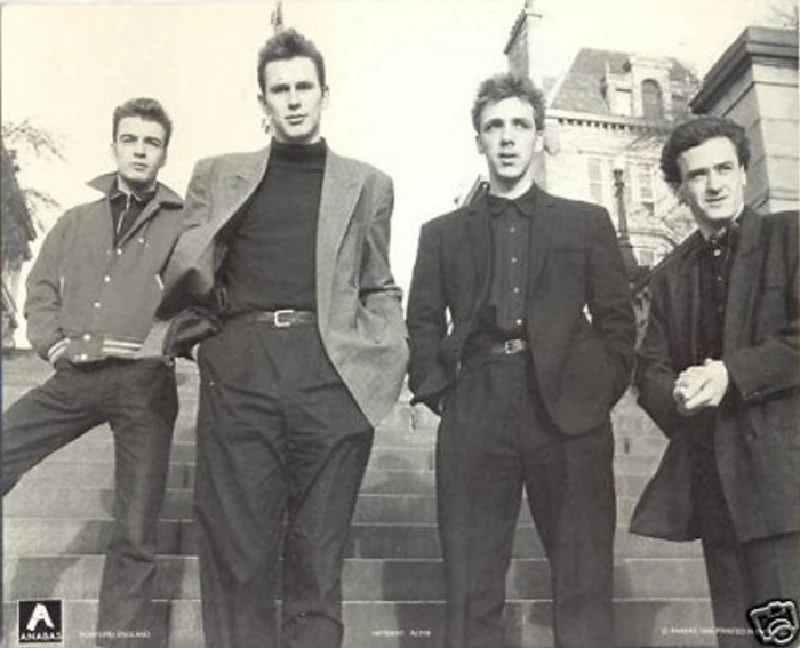
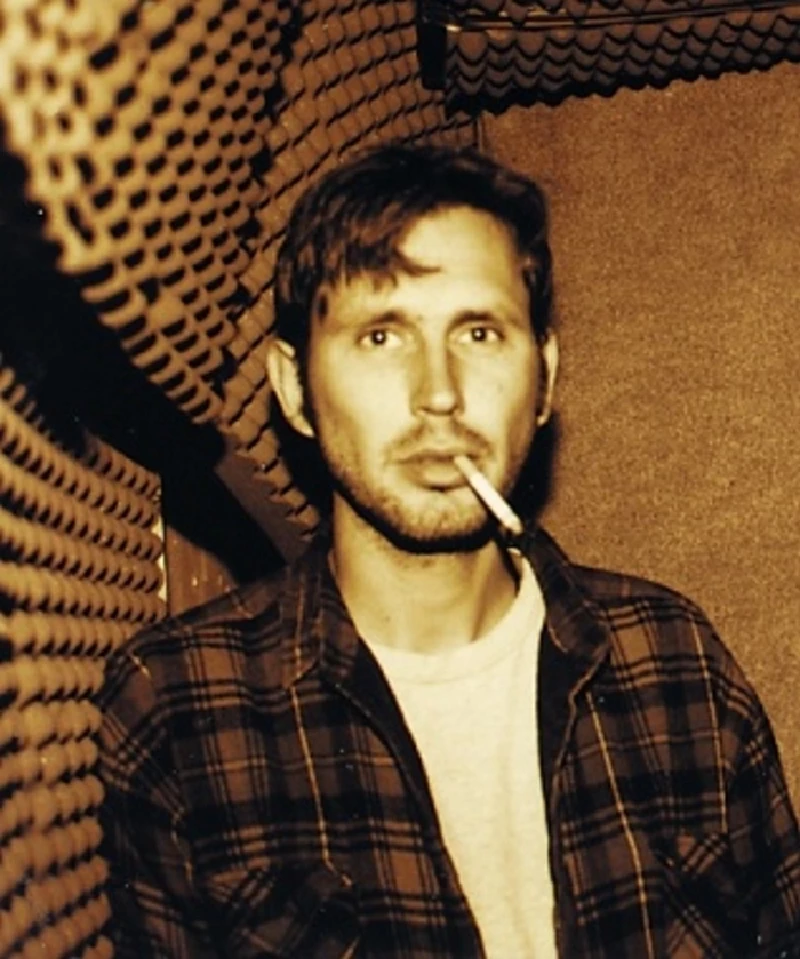
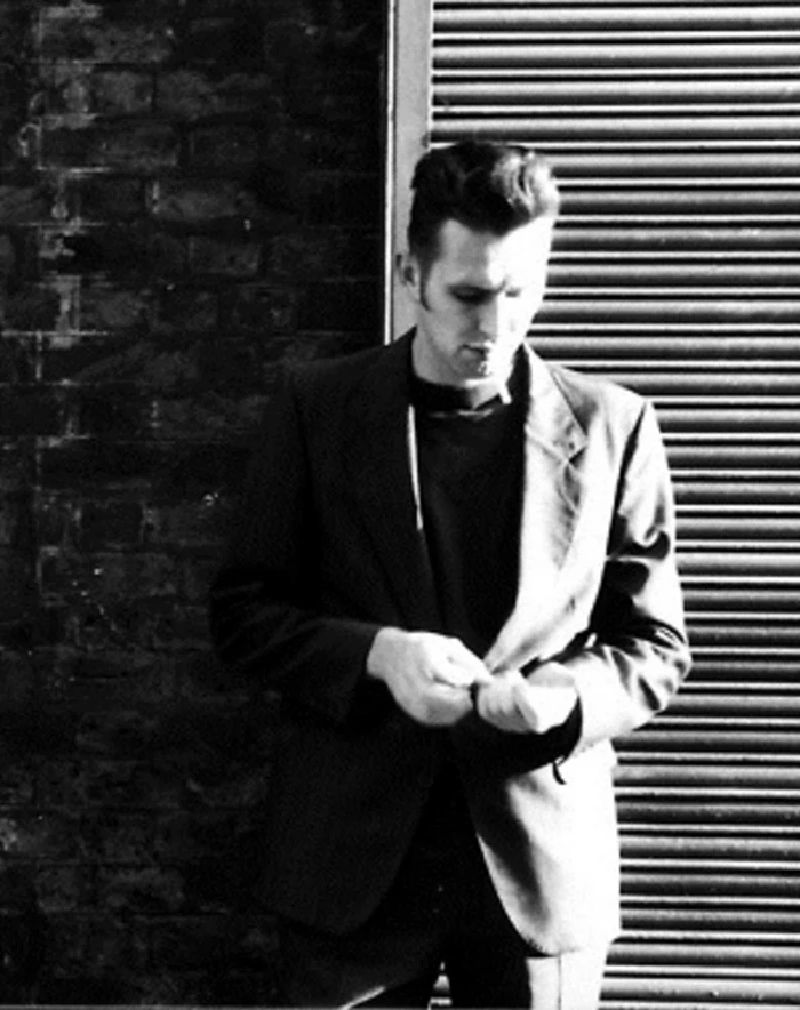

live reviews |
|
Electric Circus, Edinburgh, 17/2/2012 |
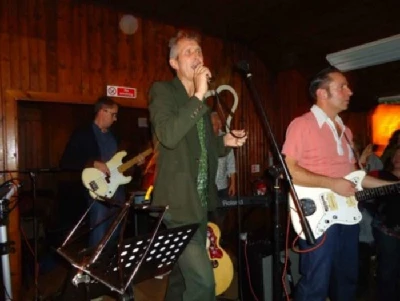
|
| Grahame Skinner was the front man with 1980's chart band Hipsway and obscure 1990's art rock project Cowboy Mouth. John Clarkson at the Electric Circus finds him with his new band Skinner and at his first show in Edinburgh to be on unpredictable, but brilliant form |
most viewed articles
current edition
Deb Googe and Cara Tivey - InterviewJack Frost - As Seen on TV
Carl Ewens - David Bowie 1964 to 1982 On Track: Every Album, Every Song
Chicago - Stay The Night
Brian Wilson - Ten Songs That Made Me Love...
Credits - ARC, Liverpool, 17/5.2025
Pistol Daisys - Waterfront, Norwich, 29/5/2025
Badly Drawn Boy - Aviva Studios, Manchester, 18/4/2025
Nils Petter Molvaer - El Molino, Barcelona, 24/4/2025
When Rivers Meet - Waterfront, Norwich, 29/5/2025
previous editions
Loop - Loop / Godflesh - Heaven, London, 4/6/2014Brad Elvis - Interview
Boomtown Rats - Ten Songs That Made Me Love....
Bathers - Interview with Chris Thomson
Basil Gabbidon - Interview
Kevin Armstrong - Interview
Ist Ist - Interview
Davey Woodward - Interview
Chris Constantinou - Interview
World Party - Interview
most viewed reviews
current edition
Davey Woodward - Mumbo in the JumboVultures - Liz Kershaw Session 16.06.88
Philip Jeays - Victoria
Eddie Chacon - Lay Low
Lapsley - I'm a Hurricane, I'm a Woman In Love
Billy Nomates - Metalhorse
Pulp - More
Garbage - Let All That We Imagine Be The Light
Morcheeba - Escape The Chaos
Little Simz - Lotus
related articles |
|
Hipsway: Interview (2016 |
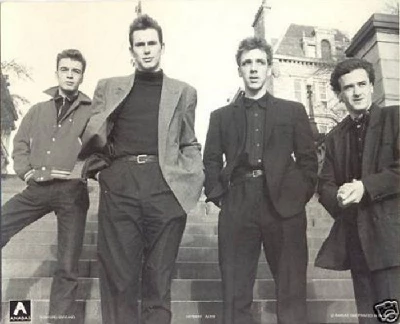
|
| Grahame Skinner talks to John Clarkson about the reissue of his 80's Glaswegian band Hipsway's eponymous debut album in a thirtieth anniversary edition and their decision to reform for shows in Glasgow and Edinburgh |
Pennyblackmusic Regular Contributors
Adrian Janes
Amanda J. Window
Andrew Twambley
Anthony Dhanendran
Benjamin Howarth
Cila Warncke
Daniel Cressey
Darren Aston
Dastardly
Dave Goodwin
Denzil Watson
Dominic B. Simpson
Eoghan Lyng
Fiona Hutchings
Harry Sherriff
Helen Tipping
Jamie Rowland
John Clarkson
Julie Cruickshank
Kimberly Bright
Lisa Torem
Maarten Schiethart